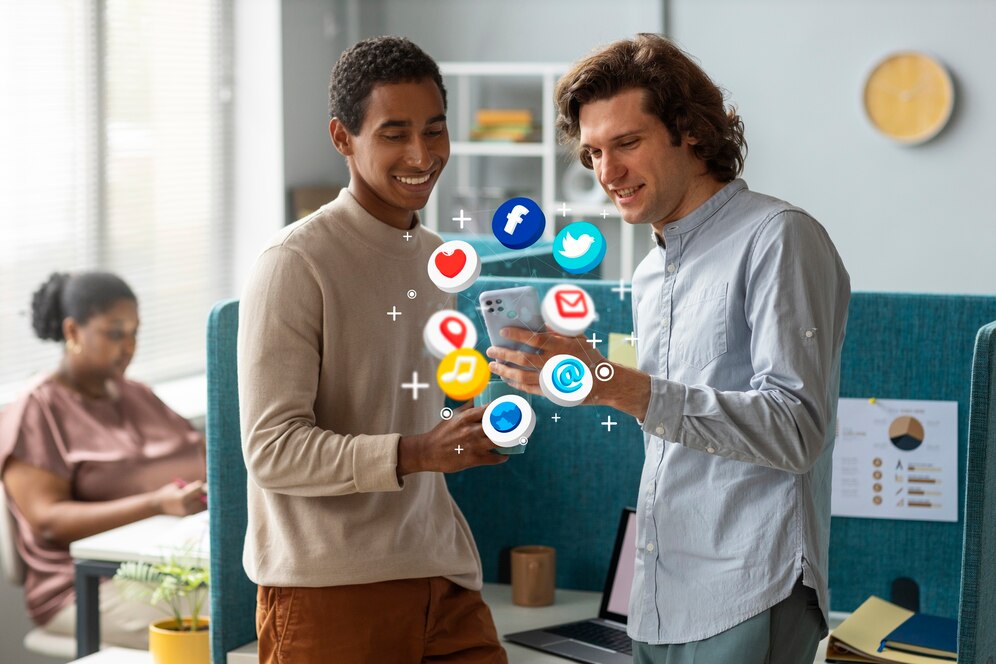The realm of digital marketing is advancing at an unprecedented pace. With technology constantly advancing and consumer behaviors shifting, businesses are looking to the top digital marketing agencies for guidance on what’s next. Understanding the trends and strategies shaping the future can help brands stay ahead of the curve and remain competitive in a crowded online space.
Here’s a deep dive into the future of digital marketing, based on insights from leading agencies around the world.
1. AI and Automation Are Leading the Way
Artificial intelligence (AI) and automation are no longer just buzzwords — they are fundamental tools for modern marketers. Top agencies predict that AI will continue to transform how brands engage with customers. From automated chatbots providing instant customer support to AI-driven personalization in ads and content, the future is about creating smarter, faster, and more relevant experiences.
Tools like predictive analytics and AI content generators are helping marketers understand consumer behavior in real-time, allowing for campaigns that are not only reactive but also proactive.
2. Hyper-Personalization Will Be Essential
Consumers today expect highly tailored experiences. According to leading agencies, personalization will soon move beyond just inserting a customer’s name in an email. Future marketing efforts will involve dynamic content that adapts based on real-time data — such as a user’s browsing behavior, purchase history, and even predictive preferences.
Brands that invest in deep customer insights and segmentation strategies will build stronger relationships and achieve better conversion rates.
Pro Tip: Focus on building detailed customer personas and use CRM tools to track and predict user behaviors for better-targeted campaigns.
3. Video Content Will Continue to Dominate
Video has been on the rise for years, but the next phase will focus on short-form and live video content. Agencies are already pushing brands to invest more in platforms like TikTok, Instagram Reels, and YouTube Shorts, where consumer engagement is booming.
Additionally, live-stream shopping, behind-the-scenes videos, and interactive video ads are predicted to grow, giving brands more authentic ways to connect with audiences.
Stat: According to a recent study, video marketers get 66% more qualified leads per year than those who don’t use video.
4. Voice and Visual Search Will Become Mainstream
With the rise of smart speakers and visual recognition technology, how people search for information is changing dramatically. Agencies are advising brands to optimize their digital assets for voice search and visual search.
Optimizing for voice search means focusing on natural language keywords and conversational content, while visual search optimization includes ensuring images are high-quality, properly tagged, and SEO-optimized.
Example: Brands like Sephora and IKEA are already using visual search technology to enhance user experience and drive sales.
5. Greater Focus on First-Party Data
As privacy regulations tighten (think GDPR, CCPA, and the phasing out of third-party cookies), top digital marketing agencies are stressing the importance of collecting first-party data.
First-party data — information collected directly from customers through website interactions, purchases, surveys, etc. — will become the most valuable asset for marketers.
Building strong, trust-based relationships with customers will be key to encouraging data sharing and creating personalized marketing strategies without relying on third parties.
Actionable Tip: Start creating loyalty programs, surveys, and exclusive content offers to gather valuable first-party data.
6. Content Marketing Will Evolve to Be More Human-Centric
Rather than just churning out SEO-driven blog posts, future content strategies will focus on storytelling, emotional connection, and genuine value.
Leading agencies predict that content marketing will prioritize humanizing brands. Blogs, podcasts, newsletters, and social media content will be more conversational, authentic, and transparent — not just promotional.
Insight: Authenticity is the new currency in marketing. Consumers crave realness over perfection.
7. Sustainability and Purpose-Driven Marketing Will Influence Buying Decisions
Today’s consumers care deeply about social responsibility, sustainability, and ethical practices. Leading agencies emphasize that brands need to showcase their values and make meaningful contributions to social causes.
Future marketing campaigns will likely revolve around sustainability, diversity and inclusion, and corporate social responsibility, creating stronger emotional bonds with audiences.
Real-World Example: Patagonia’s marketing efforts focusing on environmental activism have made them one of the most beloved brands in the world.
8. Augmented Reality (AR) and Virtual Reality (VR) will improve experiences
While AR and VR are still emerging technologies, their future in digital marketing looks incredibly promising. Top agencies are already exploring how these immersive technologies can create unforgettable brand experiences.
From virtual try-ons for fashion and beauty brands to VR real estate tours, the goal is to offer interactive, engaging, and memorable customer journeys.
conclusion
The realm of digital marketing is set to become dynamic and fast-paced, brimming with opportunities. Brands that embrace new technologies, prioritize personalization, focus on authenticity, and adapt to changing consumer expectations will thrive.Top digital marketing agencies are already preparing their strategies to align with these trends, ensuring their clients stay ahead of the competition.
If you’re serious about future-proofing your brand’s digital marketing efforts, now is the time to rethink your strategies, invest in innovation, and stay flexible in a constantly evolving landscape.


Leave a Reply